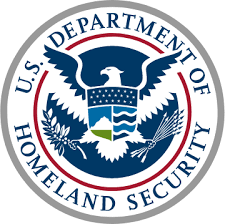Not just any other day. You are essential!
By Dusty Sonnenberg, CCA, Ohio Field Leader: a project of the Ohio Soybean Council and soybean checkoff.
It is something we in agriculture have known for generations. Unfortunately, many in society are several generations removed from the farm, and the value of agriculture has been silently forgotten. Farmers work daily to provide for the food, fiber, and energy needs of our country and the world. In times of prosperity this daily endeavor is often overlooked by the non-farm public.
Last Friday, the Secretary of Homeland Security by means of the Cybersecurity and Infrastructure Security Agency released the list of 16 critical infrastructure sectors necessary to ensure the security and resilie nce of the Nation’s critical infrastructure. Food and Agriculture were included in that list of 16. In his Friday press briefing, President Donald Trump stated that “If you work in a critical infrastructure industry, as defined by the Department of Homeland Security, you have a special responsibility to maintain your normal work schedule.” Examples of critical infrastructure industries include: food and agriculture, the communications sector, emergency services, the financial services, defense, healthcare and the public health sector, transportation, information technology, and government just to name a few.
nce of the Nation’s critical infrastructure. Food and Agriculture were included in that list of 16. In his Friday press briefing, President Donald Trump stated that “If you work in a critical infrastructure industry, as defined by the Department of Homeland Security, you have a special responsibility to maintain your normal work schedule.” Examples of critical infrastructure industries include: food and agriculture, the communications sector, emergency services, the financial services, defense, healthcare and the public health sector, transportation, information technology, and government just to name a few.

Most every news source has now reported the action by Ohio Gov. Mike DeWine of the ‘stay-at-home’ executive order, signed by Ohio Health Director Dr. Amy Acton. It is a part of a larger list of items to halt the spread of coronavirus in Ohio. Farmers should find it encouraging that while making the announcement, Governor DeWine mentioned the importance of agriculture and the food supply chain. The governor referenced the list of critical infrastructure industries as being essential, and giving those involved in agriculture an exemption from the order to continue to supply consumers with the food they need.
“We have support of the Farm Bureau, along with numerous other business and trade organizations so that we can put something together that will keep us healthy and keep essential business functions in the supply chain moving,” said Ohio Lt. Gov. Jon Husted.
The Ohio Soybean Association, Ohio Farm Bureau and several other agricultural commodity organizations have been working with the DeWine administration, emphasizing the importance of not disrupting the food system and how agriculture plays an integral part in keeping food on the table for those heeding the ‘stay-at-home’ order.
“Gov. DeWine fully recognizes that all components of the food system are essential services. Gov. DeWine’s use of the Department of Homeland Security guidance as well as other good models will allow farmers, processors, truckers and everyone who keeps the food shelves stocked to continue to work. The governor’s recognition of agriculture as an essential service should give consumers throughout Ohio peace of mind when it comes to our healthy, safe and affordable food supply,” said Adam Sharp, executive vice president of Ohio Farm Bureau.
Under the Ohio Department of Health Director’s “Stay at Home Order”, agriculture fits in multiple sections as an essential activity. Section 2 of the order includes home based businesses, and allows working from home. Section 5 paragraph D specifically mentions performing work to provide essential products and services at essential businesses and operations. Section 9 specifically references Essential Infrastructure, and individuals having the ability to leave their place of residence to provide any services or perform any work necessary to offer, operate, maintain and repair Essential Infrastructure, including but not limited to: food production, distribution, fulfillment centers, storage facilities, marinas and sales. Also included on the list were distribution centers, oil and biofuel refining, as well as ports.
Section 12 lists the Essential Business and Operations and includes agriculture in multiple paragraphs. Paragraph B lists: certified farmers’ markets, farm and produce stands, and establishments for the retails sales of groceries. It specifically includes the supply chains and administrative support operations. Paragraph C details Food, beverage, and licensed marijuana production and agriculture. In that section, it lists food and beverage manufacturing, production, processing and cultivation, including farming, livestock, fishing, baking and other production agriculture, including cultivation, marketing, production and distribution of animals and goods for consumption. It also lists businesses that provide food, shelter, and other necessities of life for animals including animal shelters, rescues, kennels, and adoption facilities.
It should also be noted that in support of agriculture and the Essential Infrastructure, Section 12, Paragraph H specifically lists gas stations and business needed for transportation, and includes: auto supply, auto repair, farm equipment and related facilities. Paragraph I includes: financial and insurance institutions, along with appraisers, title companies, financial markets, trading and futures exchanges. Paragraph J lists hardware and supply stores, and includes business that sell electrical, plumbing, and heating materials. Paragraph K lists critical trades. It includes, but is not limited to: plumbers, electricians, and exterminators. Paragraph V lists agriculture as it identifies manufacture, distribution and supply chain for critical products and industries.
As the President stated, Agriculture has a special responsibility to maintain a normal work schedule. That means taking the proper precautions to stay healthy and be productive. The Ohio Department of Health Director’s “Stay at Home Order” reminds especially those in Essential Businesses and Operations to be mindful of the directives given to help prevent the spread of COVID-19.